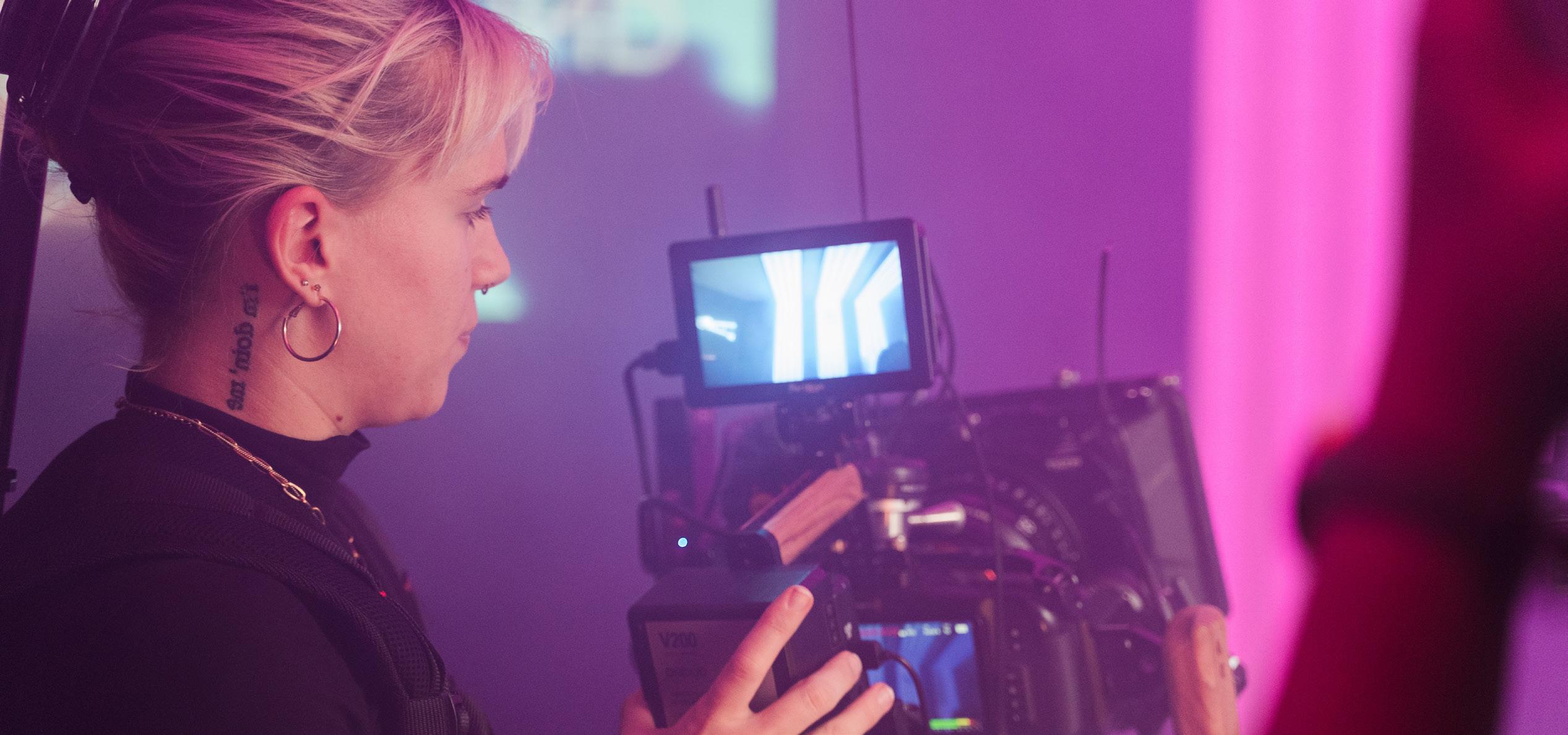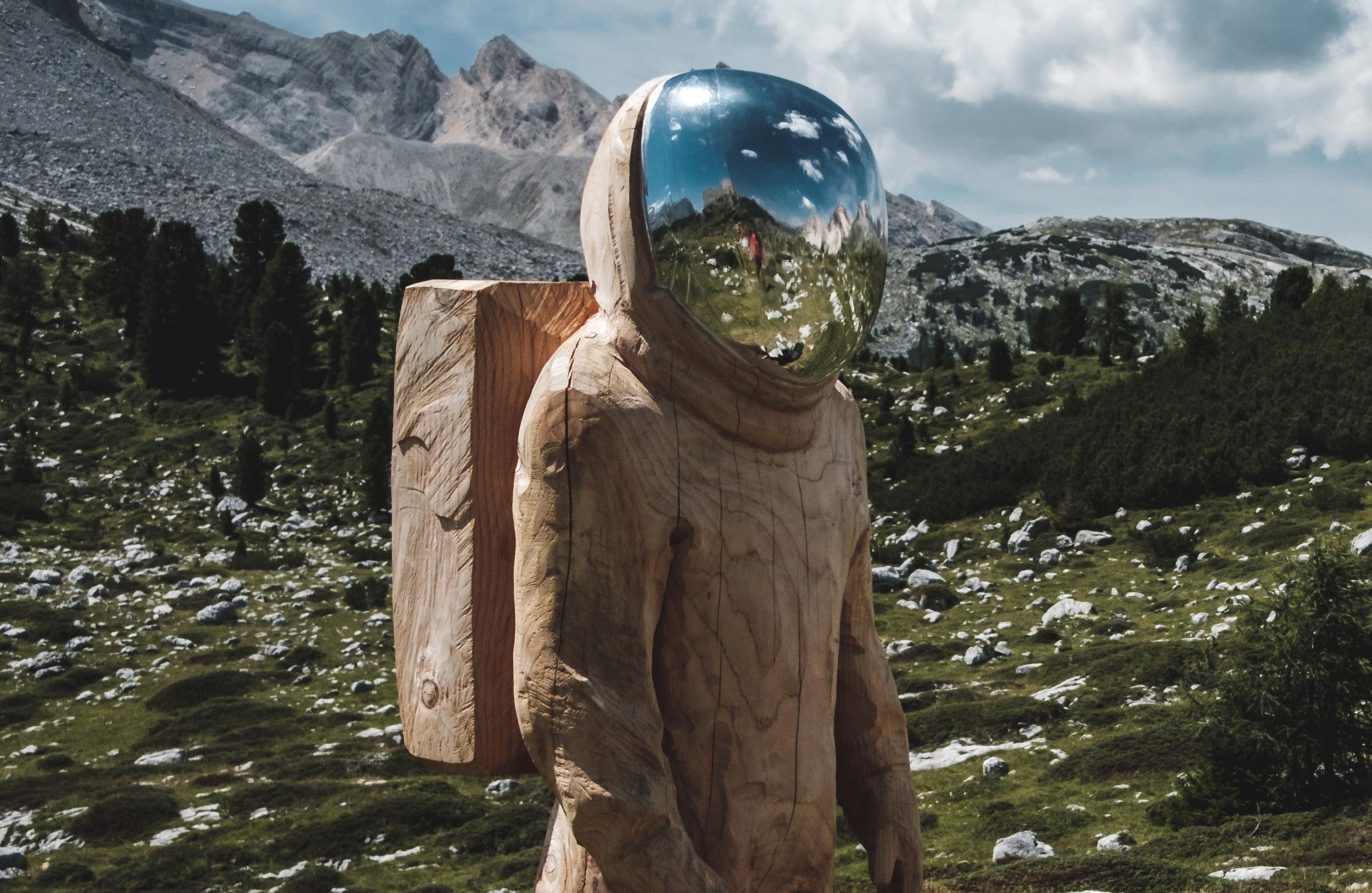
8 minute read
Michelle Auerbach
FROM EMERGENCY TO EMERGENCE - CREATING SUSTAINABLE LEADERSHIP FOR THE FUTURE
By Michelle Auerbach
IT has always been difficult to speculate about what skills, tools, and mindsets leaders and change shapers will need in the future. It’s not that we don’t know what a good leader is and what they do, because we can all describe the leaders who motivate us and help us grow, succeed, and flourish. But, we get sidelined looking at the technological changes that are coming (or are already here) and we wonder how in the world anyone will lead under those circumstances. What if we need to lead both people and sentient AI? As I write this a Google employee was fired for saying publicly that the AI he was testing was sentient—it is almost upon us. Or how will we lead when work is done remotely, with people attending holographic meetings (have you been on Zoom today?). How will we lead in a surveillance state, or in a neoliberal capitalist fascist dictatorship? How will we lead people when the Earth is uninhabitable and we are living extraterrestrially?
What we miss when we focus on the inundating and voracious pace of technological changes is that leading people, working closely with people, creating flourishing communities and engaged activists or employees is not a skill that is impacted by technology. In fact, it is a skill deeply embedded in our biology, snaking through our neurology and following our Vagus nerve into our gut and our limbs and through us into the world.
The now and future climate emergency is what we are preparing students for in the EcoGather program at Sterling College. And, in the Certificate in Change-Shaping: Connectionbased Training for Good Trouble Makers, we are specifically training the sustainable leaders of the future. The program is unusual in that it brings together communities of activists across the world who are already facing future challenges. Those communities can then form larger communities of practice and coalitions to make sustainable change.
The future looks different to activists in different parts of the world. In Puerto Rico, where communities have already experienced record-breaking storms that left hundreds of thousands of people without food, water, electricity, or shelter for months, the fear is that these superstorms are now a part of their lives. There is no way to be ready for export crops stripped off the hillsides and a collapsing economy, individual and collective trauma, and food scarcity. And yet, communities in Puerto Rico need to respond.
In India, where the weather is already showing steady and intense heat with humidity that makes it impossible to survive outside while also being plagued by recurring drought. Topsoil is washed away when the Monsoon season does not bring reliable water but floods that interact with years of monocropping, tillage, and synthetic inputs to create poor farming conditions and terrible yields. The result is an epidemic of farmer suicides.
In Colorado, the fire season which used to last from July to October is now 365 days a year with high winds, low humidity, increasing temperatures, and urbanization that threatens the Wildland-Urban Interface with more fires in more population dense areas. Urban unrest, civil rights violations by the police, and a farming community made up of mostly immigrants and H2A visa workers who have been threatened by the racism and xenophobia of America’s Right leads to food insecurity and food systems disruptions.
What all these places have in common is that they are coming together through Sterling College’s EcoGather program to learn to lead and shape change in the face of the climate and food systems disasters that are already upon us and will become more extreme and more common in the future. EcoGather is designed

to help communities navigate the ecological crises and social challenges driven by extractive approaches to meeting human needs. Challenges that have manifested in climate change, biodiversity loss, and rising inequality.
“Deep wisdom exists in communities. It is derived from relationships to places that unfold over time and is revealed through conversation,” observes Sterling’s Vice President for Strategic Initiatives Nicole Civita, a food systems educator and advocate who is leading the development of EcoGather. “Unfortunately, much of the ecological knowledge that enabled humans to live harmoniously with their environs was devalued when community-centered agriculture gave way to global agribusiness -- a tech-heavy, extractive, profit-driven enterprise that inures to primarily to the benefit of a few multinational conglomerates.”
The tools they need are ones that we have had in our communities and our bodies for millennia – those of empathy, care, commitment to each other, and an understanding that the future we shape comes from shaping change now. In other words, we are emboldening leaders who lead with empathy. Empathy is hard wired into us – we know this from studies in fields as far ranging as neurobiology, behavioral genetics, psychology, cognitive science, sociology, and literary theory. Research into empathy has changed the perception of empathy from a soft skill to a neurobiologically based competency. Sustainable leaders in future-oriented movements need to start by working on their own inner experience of change. They need to show up for change ready to manage their nervous systems, listen, and lead from connection. Their communities also need to be constructed or reconstructed with an understanding of what bridges difference or breaks people apart. Movements can benefit greatly from the breadth of activist history around the world. The past is preparation for the future that change shapers will create. Finally, we use storytelling as a way to ground empathy in communities and create change in cultures and systems.
The four basic skills we focus on in the Certificate in Change-Shaping: Connection-based Training for Good Trouble Makers compose what we call “thick empathy.” According to researchers Roseann Liu and Savannah Shange, “Thick [empathy] is based on a radical belief in the inherent value of each other’s lives despite never being able to fully understand or fully share in the experience of those lives. Exploring the role that empathy plays in forming solidarities is an attempt to understand the “personal and affective dimension to . . . political commitments.”
From this thick empathy we derive our four basic skills.
1)Willingness and ability to be uncomfortable. 2) Ability to bridge instead of breaking. 3) Ground truthing our practices. 4) Making SMART decisions with SMART values.
Willingness to be uncomfortable
Understanding other people, whether individually or as

communities, means becoming intellectually and socially humble, vulnerable, and willing to learn. The truths about how we as humans, especially around power and money, have treated each other in the past and present are appalling and sitting with that discomfort is the only way the future will be different.
Bridging
Bridging is a term coined by John A. Powell, professor and director of the Othering & Belonging Institute at UC Berkeley and a professor. He posits that the speed and depth of change in the world creates anxiety. The way through that anxiety to shaping change comes from bridging difference, and most specifically through deep listening and storytelling.
Ground Truthing
In the disabilities rights community there is a saying “nothing about us without us.” This rallying cry asks that the reality of the people being represented be present in the conversations about them and that all the people who want to “help” first stop and listen. The idea that the truth on the ground is the real territory, and theory is only the map, helps sustainable leaders and change shapers to move into the future with their communities and to build coalitions on shared goals, not break apart because of perceived but untested prejudice.
SMART Decisions and SMART Values
Students in the program are able to learn the SMART Futures Framework from Dr. Claire Nelson in a dramatic way by working through the issues that Dr. Nelson brings them about being the first Black woman on the Moon. The students learn to use this framework, which n being ever-curious about every element of a problem; n being imperfectionists, with a high tolerance for ambiguity; n having a “dragonfly eye” view of the world, to see through multiple lenses; n tapping into the collective intelligence of all in the ecosystem and bringing them into the room; n practicing “show and tell,” because storytelling helps drive change.
As the futurist, thinker and writer Octavia Butler said, “There is nothing new under the sun, but there are new suns.” This call to a future where we are the full humans we need to be to connect with each other, develop thick empathy, and lead from a place of awe and wonder at humanity is not a new skill. The situations and places we will need to apply it, and the technology through which we deploy it, may be very different from the world in which we sit today. What we hope for the sustainable leaders who come through our certificate program is that they find ways to be human better moving into the future, not as a new idea or a new practice, but as deeply rooted, place-based, ancestor-driven, harmonious leaders wherever they find themselves.
THE AUTHOR
Michelle Auerbach, PhD. is the subject matter expert and curriculum designer for Sterling College and author. She can be reached at www.michelleauerbach.com
NOTES: 1 Roseann Liu and Savannah Shange, “Toward Thick Solidarity: Theorizing Empathy in Social Justice Movements,” in Radical History Review, Issue 131 (May 2018). 2 Nelson, Claire A.. Resetting Our Future: SMART Futures for a Flourishing World (pp. 95-96). John Hunt Publishing. Kindle Edition.

REVIEW ROOM











